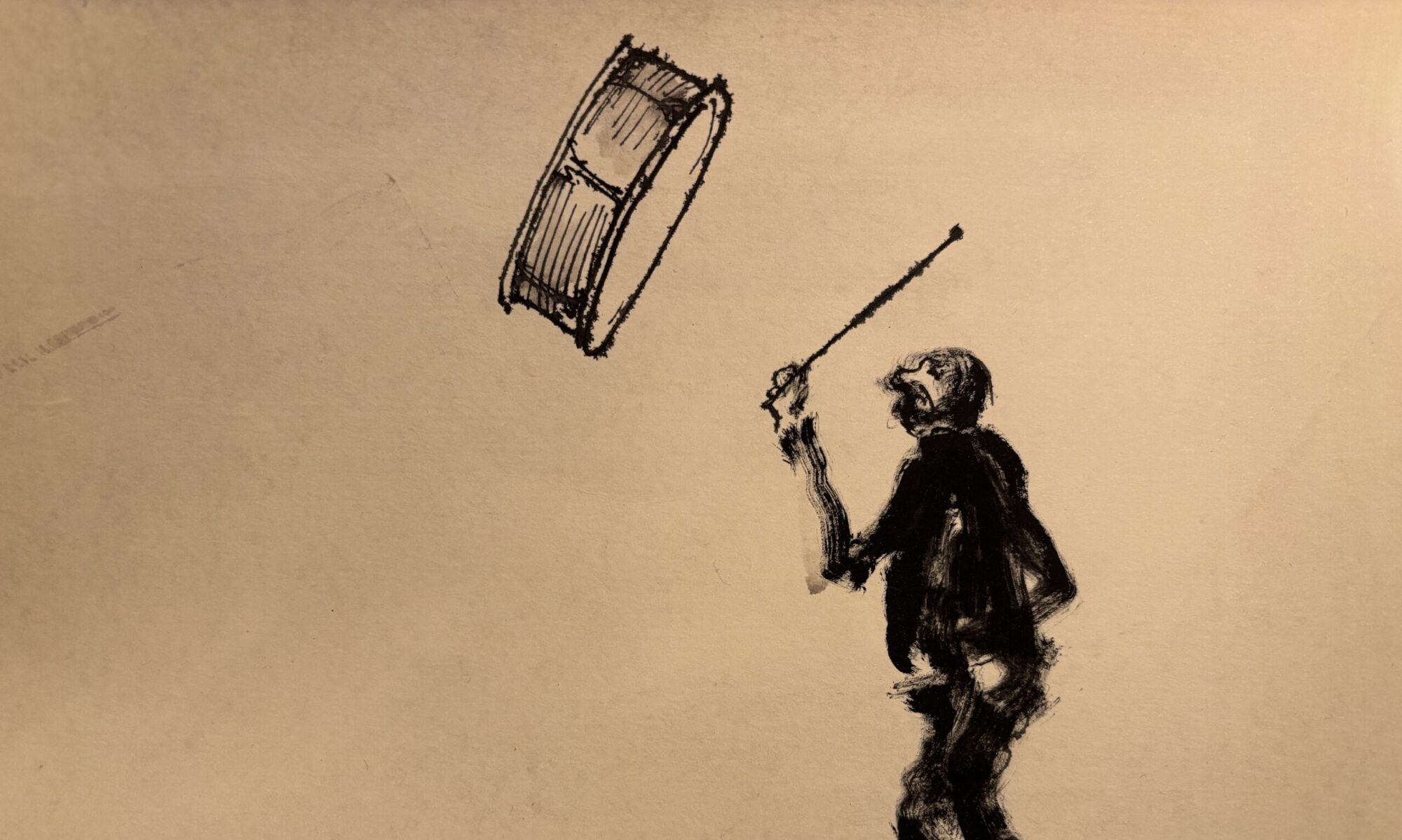Our work for this seminar takes on a series of topics that bear on the poem’s life in the mouth, the ear, and the air. We begin with prosody and phonetics, as two basic vocabularies for analyzing the sound of poems. We move on to consider rhyme, then poetry as music and poetry set to music. Weeks on voice (identity, accent, dialect) and history (hearing the past) follow, and then we will turn to examples of “sound poetry” and their scores in the twentieth and twenty-first centuries. The last two weeks are devoted to student presentations on the sound of a chosen poem, the basis of the course’s final project.
Assignments for the course fall into the following categories. What’s due each week is on the schedule page, and the weekly exercises are described in detail on the exercises page,
Reading and listening: each week a mix of readings and listenings will be assigned. The readings will include poems, criticism, and theory, usually about fifty pages in total. They will be provided in hard copy in class for the week ahead, and will also be available for download and printing on the class website—this is so we will not need to be reading from laptops, tablets, or phones during seminar. (Optional readings will be available for download on the site, but need not be brought to class.)
Exercises: most weeks a short exercise will be due, exploring ideas from the week’s reading (for example, scansion and annotation of a poem for discussion). These exercises may be introduced for discussion during class and will be collected at the end.
Reflections and questions: each week three members of the class will be asked to lead us into one of the readings or listenings, by making a few remarks and posing a question or two to get us started. These are not formal presentations, but rather a two- or three-minute launch into a new topic. You can sign up for two slots here; I will reach out for a brief discussion in advance.
Final project: an illustrated (acoustically, visually) essay on the sound of a poem. You should choose one poem, and provide an analysis of its sound, drawing on the descriptive and analytic terms and tools developed in the class. Your essay should include sound examples (by way of links or sound files), and should be 3500 words in length (the equivalent of 10 pp. double-spaced). You can find a more detailed description of the assignment at the bottom of the exercise page.
Amazing Sound of the Week: we will begin each class by listening to one or two Amazing Sounds brought by members of the class, as a sort of meditative exercise. Each of us will be responsible for bringing one over the course of the semester; you can sign up for your week here. The sound should be not longer than one minute, and can be shorter; it could be a poem or part of a poem (however you construe that), or the sound of a poem (ditto), or a sound that wants a poem about it (ditto). If you are on for the week, please send me an audio file by 6 PM on Sunday. I’ll post them all to the sounds page after we hear them in class. That page will also host whatever sounds we want to put there. (Send them along as you find them!)
Grading:
EXERCISES: 30% (each graded on a scale of 1-100)
CLASS PARTICIPATION: 30% (good enough class participation—thoughtful and informed contributions to the conversation—will yield a class participation grade that averages your grade for the exercises and final project; evident lack of preparation will lower your grade, and consistent contributions that help the group move our thinking forward will raise it).
FINAL PROJECT: 40% (graded on a scale of 1-100)
Attendance: You are expected to attend all sessions and to be prepared to be an informed participant in discussions. The second unexcused absence will result in a deduction of a third of a grade (e.g. A to A-) from the final course grade; the third will result in an additional full grade deduction (e.g. A- to B-). It is not possible to pass the course if you miss more than three sessions without a documented excuse.
Laptop/tablet/phone policy: though we will sometimes make use of software for sound production and analysis, by default there will be no screens in seminar, to better assure our careful listening to the poems and to each other. Students with University documented accommodations should talk to me and I will very very gladly make appropriate allowances/arrangements.
